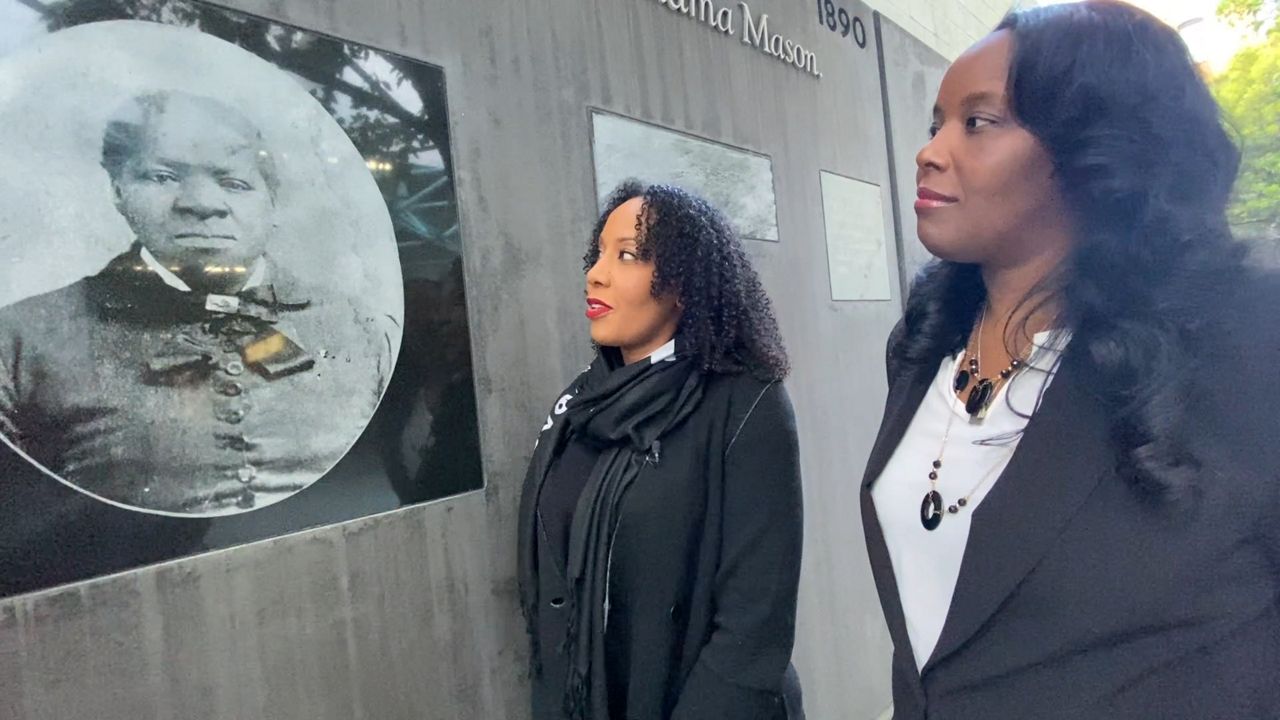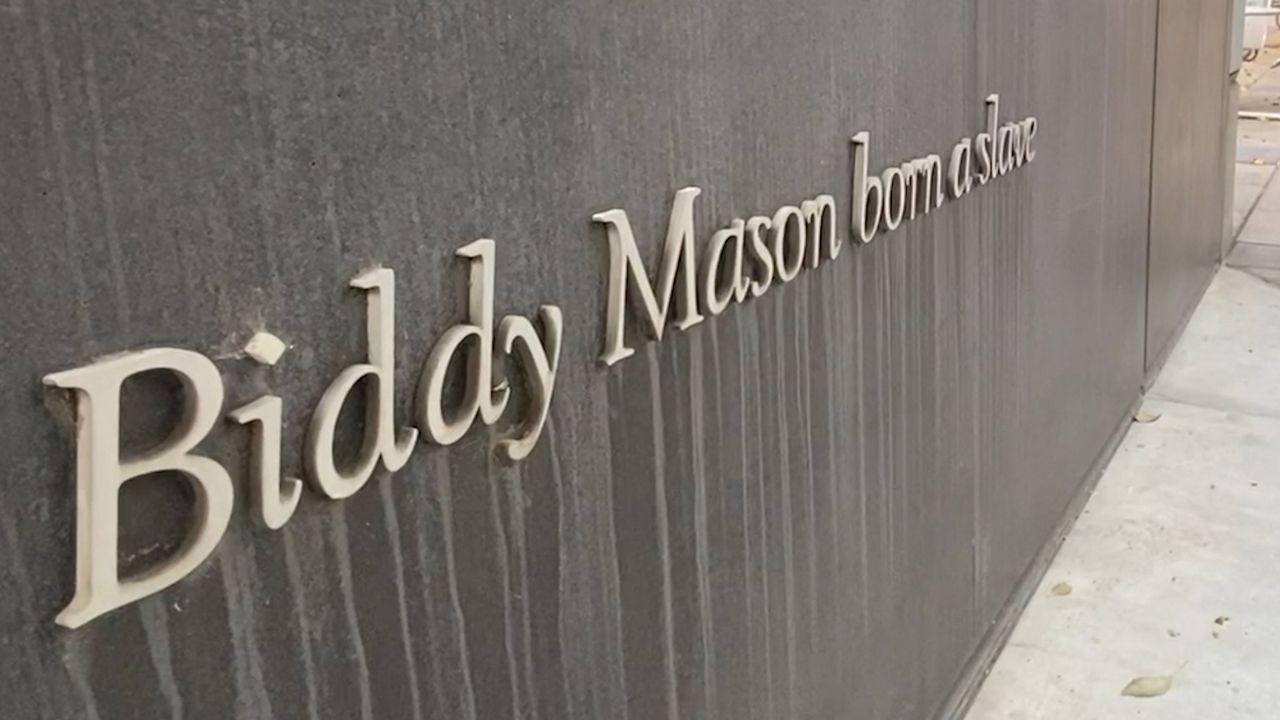LOS ANGELES — Tucked between the Bradbury Building and a multilevel parking garage is a tiny gem of a public place — a park dedicated to a true trailblazer. It’s there that passersby will encounter five words printed on a wall, words that may stop them in tracks.
“Biddy Mason born a slave,” it reads, the beginning of a story that Cheryl Cox and her sister Robynn have known all their lives.
“I remember sitting as a child at my great-grandmothers’ feet and she would tell us stories about Biddy,” Cheryl Cox said.
The sisters are Mason’s great-great-great-great-granddaughters. Looking at the only known photograph of her face, they see much more than a legend.
“I see a strong, tenacious woman who’s persevered through a lot but still has a lot of love in her eyes," Cheryl Cox said.

Robynn Cox sees a woman who was no nonsense, but who loved her family and put them first. “She was very wise and gave good advice,” she described. "And I think she was loving and caring.”
Born into slavery, Bridget Mason, known as Biddy, was owned by the Smith family. When they relocated from Mississippi to Salt Lake City, Utah, they brought Biddy and her children, with Mason walking 1,700 miles behind the wagon caravan.
The Smith family later moved to San Bernardino, California, reportedly to begin a Mormon community there, again taking Mason and their other slaves with them. However, California was a free state. It was here that Mason fought for her freedom in court — and won.
“Free forever,” Cheryl Cox read from a reproduction of the court papers.
Mason had long worked as a midwife, and continued to do so, delivering hundreds of babies. With the money she made, she purchased property in the heart of what is now downtown Los Angeles and eventually became a wealthy landowner and philanthropist, a founding grandmother of the city.
The site of her original homestead is now Biddy Mason Memorial Park.
Sana Ahmed is the student and family program manager for the Los Angeles Conservancy, which offers a walking tour of Historic Downtown. This park, tucked between Spring and Broadway, is the last stop on that tour, which is offered on Saturday mornings. For her, Biddy Mason’s story represents an intersection of many topics important to Los Angeles.
“Black history, women’s history, civil rights, social justice, labor movements — all are encapsulated in her story and in this space," Ahmed said.
The park, she says, was created as a place of public history and is made up of two works of art. The first is an 80-foot-long poured concrete timeline wall called Biddy Mason Time and Place. Ahmed wants visitors, especially the student groups she brings here, to interact with it and understand Mason’s lasting impact on the city.
The second piece is located inside the multilevel parking structure, directly across from the elevators. This piece, called Biddy Mason’s House of the Open Hand, consists of a blown-up photograph and a shadowbox-type feature. The name refers to a quote associated with her: “If you hold your hand closed, nothing good can come in. The open hand is blessed, for it gives in abundance, even as it receives.”
Her philanthropy included starting a school for Black children, caring for orphans and opening her home as a gathering place where members of community could discuss solutions to problems and ways to meet the needs of the people.
According to Ahmed, this included “a conversation that started the First African Methodist Episcopal Church, a congregation that is still going strong today.”
“She also went into the prisons and helped the prisoners when no one else was willing to — like with small pox epidemics," Cheryl Cox said.
It’s been over 150 years since Grandma Mason won her freedom in court, but Robynn Cox says not everyone has such a positive experience with the justice system. An assistant professor at USC, she is researching the ties between the criminal legal system and social and racial inequality and says it all stems from her great-great-great-great-grandmother’s story.
“It really inspired me to understand those inequalities and also how they impact an individual over the course of their lives,” she said. “Her story tells us what America could be. I don’t think we’ve quite reached the goal yet.”
Dedicated to preserving her legacy, the sisters are now trying to get a portion of Spring Street named after their pioneering ancestor. There’s a lesson in her story that they want visitors to know.
“No matter how you start in life, you can always end differently,” Cheryl Cox said.
The journey may not be easy, but the Coxes say Biddy Mason is proof that it’s possible.




